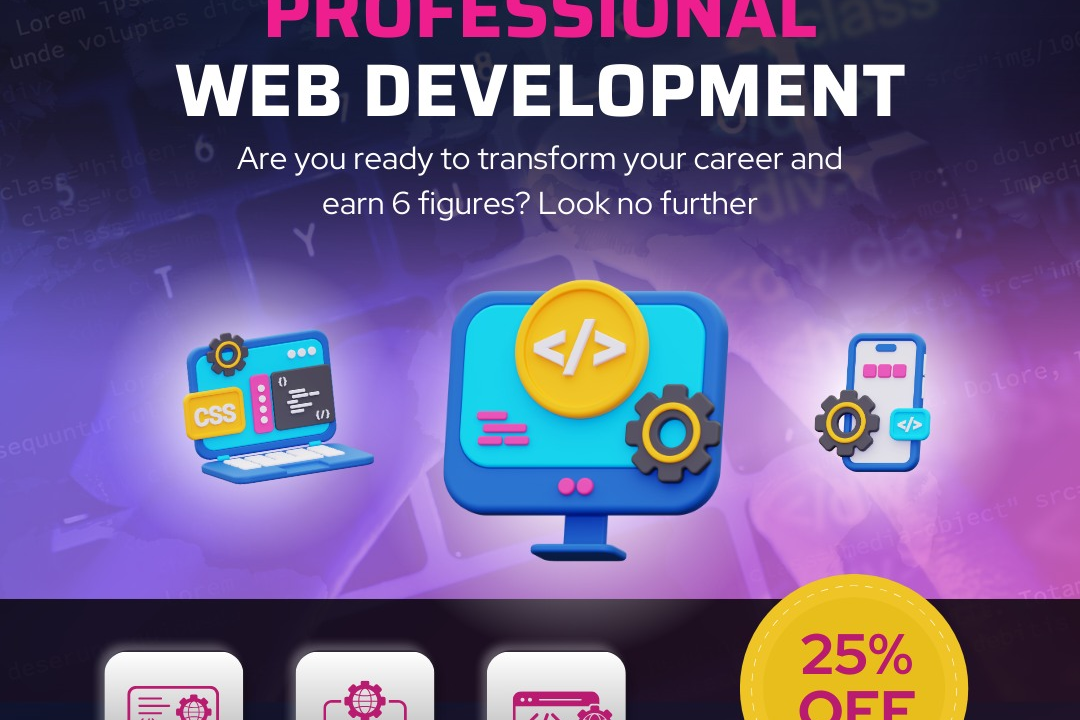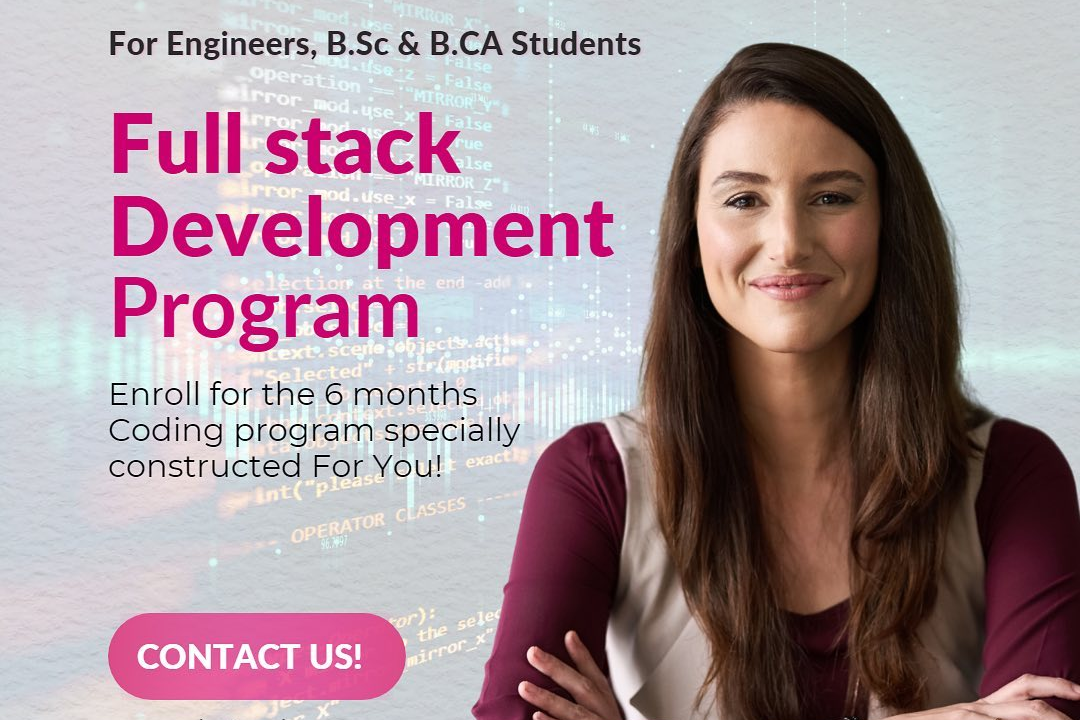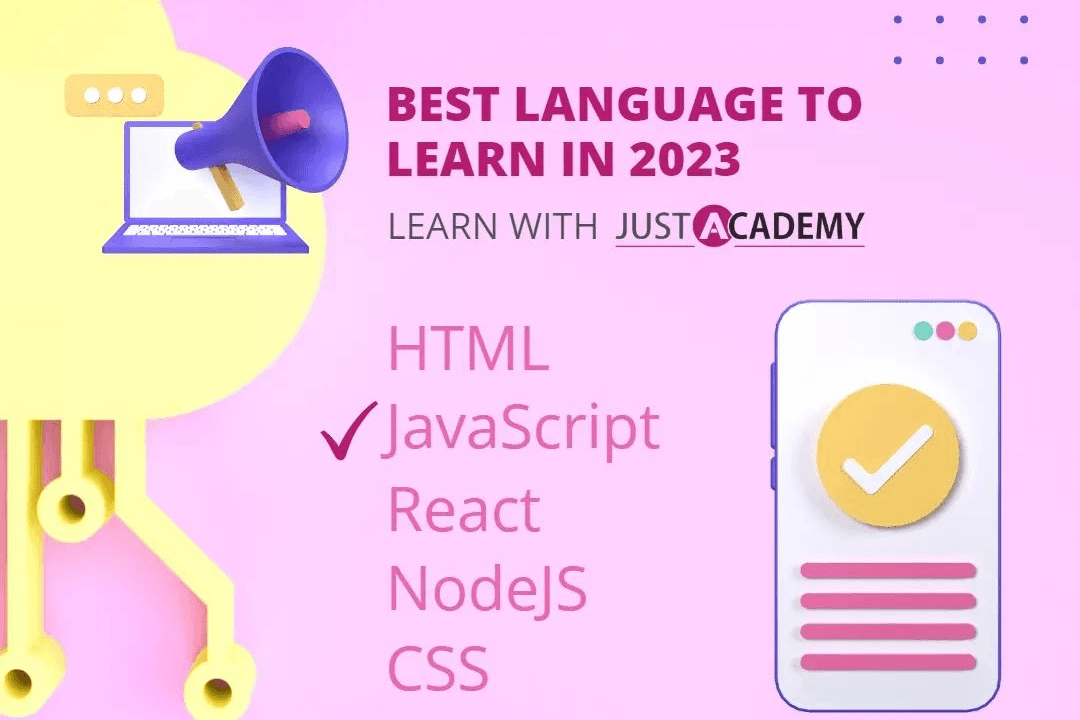Laravel Experience Interview Questions
Laravel Interview Questions for Experienced Developers
Laravel Experience Interview Questions
Questions based on Laravel experience in an interview provide valuable insights into a candidate's understanding of the popular PHP framework and its capabilities. They assess the candidate's proficiency in model-view-controller (MVC) architecture, database integration, data manipulation, routing, and other core concepts. By asking these questions, interviewers can evaluate the candidate's practical knowledge of Laravel and their ability to apply it in real-world scenarios.
To Download Our Brochure: https://www.justacademy.co/download-brochure-for-free
Message us for more information: +91 9987184296
1 - Describe the MVC architecture of Laravel: The Model View Controller (MVC) architecture separates the application into three distinct components: the model, view, and controller. The model handles data and business logic, the view presents the data to the user, and the controller acts as the intermediary between the model and view.
2) Explain the Eloquent ORM in Laravel: Eloquent is an Object Relational Mapping (ORM) that allows you to interact with the database using PHP objects. It simplifies data retrieval and manipulation by providing an easy to use interface.
3) What is Laravel's routing system: The Laravel routing system enables you to define routes that map URLs to specific controllers and actions. It supports various HTTP methods and allows for route parameters, middleware, and named routes.
4) Describe the Blade templating engine in Laravel: Blade is a powerful templating engine that provides an easy way to generate dynamic views. It offers features such as conditional statements, loops, and directives that enhance the expressiveness of templates.
5) Explain Laravel's authentication system: Laravel provides a comprehensive authentication system out of the box. It handles user registration, login, and logout, and allows you to customize the authentication process through middleware and events.
6) What is Laravel's dependency injection container: The dependency injection container simplifies dependency management by allowing you to define and resolve dependencies throughout your application. It helps promote loose coupling and improve modularity.
7) Explain the concept of service providers in Laravel: Service providers are a way to register services and bindings with the Laravel application. They allow you to define application wide configurations, register event listeners, and publish assets.
8) Describe the migration system in Laravel: Laravel's migration system allows you to manage database schema changes in a controlled and versioned manner. It provides a simple way to create and modify tables, columns, and other database structures.
9) Explain the role of middleware in Laravel: Middleware is used to intercept HTTP requests and responses, allowing you to perform actions such as authentication, authorization, and caching. It offers a convenient way to extend the functionality of your application without modifying the core code.
10) What is the purpose of facades in Laravel: Facades are a global helper interface that provides easy access to various Laravel components, such as the database, cache, and mail. They simplify code and reduce the need for direct instantiation of underlying classes.
11 - Describe the logging system in Laravel: Laravel provides a flexible logging system that allows you to log messages and exceptions to various channels, such as files, databases, and email. It offers different levels of logging and integration with popular logging libraries.
12) Explain the concept of queues in Laravel: Laravel supports asynchronous job processing through queues. It allows you to dispatch tasks to background workers, enabling parallel processing and improved performance.
13) Describe the event system in Laravel: The Laravel event system provides a way to listen to and dispatch events throughout your application. It allows you to handle various events, such as user registration, email sending, and model deletion.
14) Explain the concept of Artisan commands in Laravel: Artisan commands are a powerful toolset that allows you to interact with your Laravel application from the command line. They provide a convenient way to perform tasks such as generating code, running database migrations, and managing user accounts.
15) Describe the Laravel testing framework: Laravel offers a comprehensive testing framework that makes it easy to write unit, feature, and integration tests for your application. It provides various assertion methods and support for mocking and stubbing.
Optimize Your Content
- Use relevant keywords: Research and incorporate keywords that your target audience is searching for.
- Create high quality content:* Provide valuable and engaging information that resonates with your readers.
- Optimize for readability:* Use clear language, short paragraphs, and bullet points to enhance readability.
- Include internal links:* Link to relevant pages within your site to improve navigation and increase page views.
- Promote Your Content
- Social media marketing:* Share your content on social media platforms where your target audience is active.
- Email marketing:* Create targeted email campaigns to promote your content to your subscriber list.
- Influencer marketing:* Collaborate with influencers in your industry who can share your content with their followers.
- Guest posting:* Write guest posts for other blogs to reach a wider audience.
- Engage with Your Audience
- Respond to comments and messages:* Build relationships with your readers by promptly responding to their interactions.
- Conduct contests and giveaways:* Offer incentives to engage your audience and encourage sharing.
- Foster a community:* Create forums or discussion groups where your readers can connect and share their insights.
- Technical Optimization
- Improve site speed:* Optimize your website's performance to provide a seamless user experience.
- Use a mobile responsive design:* Ensure your site is accessible and readable on all devices.
- Secure your site with HTTPS:* Implement an SSL certificate to encrypt data and enhance user trust.
- Other Tips
- Set realistic goals:* Start with attainable targets and gradually increase your efforts as you progress.
- Track your progress:* Monitor your analytics to identify areas for improvement and adjust your strategies accordingly.
- Experiment and iterate:* Test different approaches to see what works best for your audience and make adjustments as needed.
- Stay updated with SEO trends:* Keep yourself informed about the latest search engine algorithms and industry best practices.
- Consider consulting a professional:* If you encounter challenges or need expert advice, consider hiring an SEO specialist or agency.
- Course Overview
- Prepare for your Laravel interview with confidence with this comprehensive course covering advanced topics. Interviewers will be impressed by your familiarity with concepts like dependency injection, queues, event handling, and unit testing in Laravel. Master these skills to demonstrate your expertise and stand out in the competitive job market.
- Course Description
- This comprehensive course equips aspiring Laravel developers with the essential knowledge to excel in technical interviews. Leveraging real-world scenarios, it delves into common interview questions, covering fundamental Laravel concepts, advanced techniques, and project-building experience.
- Key Features
- 1 - Comprehensive Tool Coverage: Provides hands-on training with a range of industry-standard testing tools, including Selenium, JIRA, LoadRunner, and TestRail.
- 2) Practical Exercises: Features real-world exercises and case studies to apply tools in various testing scenarios.
- 3) Interactive Learning: Includes interactive sessions with industry experts for personalized feedback and guidance.
- 4) Detailed Tutorials: Offers extensive tutorials and documentation on tool functionalities and best practices.
- 5) Advanced Techniques: Covers both fundamental and advanced techniques for using testing tools effectively.
- 6) Data Visualization: Integrates tools for visualizing test metrics and results, enhancing data interpretation and decision-making.
- 7) Tool Integration: Teaches how to integrate testing tools into the software development lifecycle for streamlined workflows.
- 8) Project-Based Learning: Focuses on project-based learning to build practical skills and create a portfolio of completed tasks.
- 9) Career Support: Provides resources and support for applying learned skills to real-world job scenarios, including resume building and interview preparation.
- 10) Up-to-Date Content: Ensures that course materials reflect the latest industry standards and tool updates.
Benefits of taking our course
Functional Tools
1 - Laravel Experience Interview Questions: A comprehensive course designed to prepare candidates for Laravel job interviews by covering advanced concepts and real life scenarios.
2) Laravel Framework: The primary technology covered in the course, a popular PHP framework used for developing web applications.
3) Eloquent ORM (Object Relational Mapping): A powerful tool for interacting with databases in Laravel, providing an object oriented interface for working with data.
4) Blade Templating Engine: Laravel's built in templating engine, used for creating dynamic and reusable views.
5) Artisan Console: A command line tool that simplifies development tasks, such as generating boilerplate code, running migrations, and performing database seeding.
6) Testing Tools (PHPUnit and Laravel Dusk): Essential for ensuring the quality and stability of Laravel applications, covering both unit testing and browser testing.
7) Debugging Tools (Xdebug and Laravel Debugbar): Powerful tools for identifying and resolving errors, providing detailed information about the application's state and execution flow.
8) Composer Dependency Manager: Used for managing third party libraries and updates, ensuring compatibility and dependency resolution.
Increase Engagement:
- Post regularly, providing valuable and compelling content
- * Engage with followers by responding to comments and asking questions
- * Run contests and host giveaways to encourage participation
- Optimize Profile:
- * Use a relevant profile picture and cover photo
- * Write a concise and engaging bio
- * Include relevant keywords in your bio and posts
- Use Hashtags:
- * Research and use relevant hashtags to increase visibility
- * Create your own branded hashtags to promote unique content
- Collaborate with Others:
- * Reach out to influencers and other businesses for guest posts or cross promotions
- * Host joint giveaways or events
- Track and Analyze:
- * Use analytics tools to track your progress and identify areas for improvement
- * Monitor engagement rates, impressions, and other key metrics
- Use Social Media Advertising:
- * Run targeted ads to reach a wider audience
- * Experiment with different ad formats and targeting options
- Stay Current with Trends:
- * Keep up with the latest social media trends and platform updates
- * Adapt your content and strategies accordingly
- Automate Tasks:
- * Use social media management tools to schedule posts, manage comments, and track analytics
- * This can save time and streamline your efforts
- Provide Excellent Customer Service:
- * Respond promptly to inquiries and complaints
- * Go above and beyond to resolve issues and build loyalty
- Run Paid Campaigns:
- * Consider investing in paid campaigns to boost your reach and brand awareness
- * Use a combination of social media advertising and influencer marketing
- Measure Success:
- * Define clear goals for your social media efforts
- * Track your progress and make adjustments as needed
- * Use tools like Google Analytics to monitor website traffic and conversions
Browse our course links : https://www.justacademy.co/all-courses
To Join our FREE DEMO Session: Click Here
This information is sourced from JustAcademy
Contact Info:
Roshan Chaturvedi
Message us on Whatsapp:
Email id: info@justacademy.co
Angular Minds Interview Questions
Top 10 React Native Interview Questions












